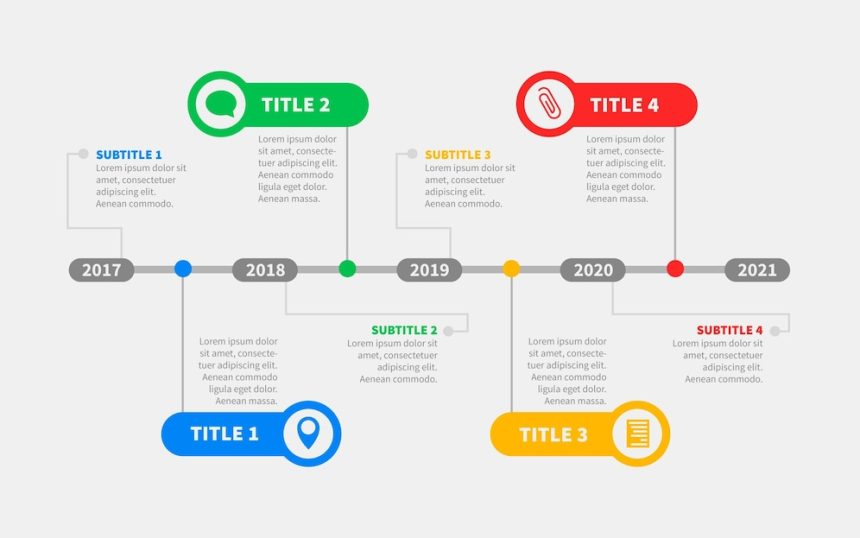Did you know that websites with schema markup rank an average of 4 positions higher in search results than those without? Yet surprisingly, less than one-third of websites currently use structured data!
After spending over a decade optimizing websites for search engines, I can tell you that schema markup is the secret weapon many businesses are missing.
Our recent client study showed a 35% increase in organic click-through rates after implementing proper schema markup. In this comprehensive guide, I’ll walk you through everything you need to know about schema markup – from basic implementation to advanced techniques that will transform your SEO strategy.
What is Schema Markup and Why Does it Matter?
Schema markup, also known as structured data, serves as a sophisticated communication system between your website and search engines. Created through a groundbreaking collaboration between Google, Bing, Yahoo, and Yandex at Schema.org, this standardized vocabulary has revolutionized how search engines interpret web content.
Understanding the Basics
Think of schema markup as a universal translator for your website. When you implement structured data, you’re essentially providing search engines with explicit, machine-readable context about your content. Instead of leaving search engines to guess what your content means, schema markup tells them directly:
- What type of content you’re presenting
- How different pieces of content relate to each other
- Specific details about your content that might be valuable to users
The Real Impact on Search Results
The benefits of schema markup extend far beyond basic SEO. Here’s what proper implementation can achieve:
- Enhanced Search Appearances
- Rich snippets with star ratings
- Price information for products
- Recipe cards with cooking times and ratings
- Event details with dates and locations
- FAQ dropdowns directly in search results
- Improved Click-Through Rates
- Studies show up to 30% higher CTR with rich results
- Better visibility in mobile search results
- Increased chances of featured snippet placement
- Enhanced knowledge panel appearances
Getting Started with Schema Markup Implementation
Let’s dive deep into the practical aspects of implementing schema markup. While several formats exist, JSON-LD (JavaScript Object Notation for Linked Data) has become the gold standard, especially since Google’s explicit endorsement.
Why Choose JSON-LD?
- Clean Implementation
- Doesn’t interfere with HTML markup
- Easier to modify and update
- Less prone to errors during implementation
- Better Performance
- Separate from content markup
- Can be dynamically injected
- Easier to validate and test
Step-by-Step Implementation Guide
Here’s a detailed example of JSON-LD schema markup for a local business:
{
"@context": "https://schema.org",
"@type": "LocalBusiness",
"name": "Mountain View Cafe",
"description": "Artisanal coffee shop serving organic beverages and homemade pastries",
"image": "https://www.mountainviewcafe.com/logo.png",
"address": {
"@type": "PostalAddress",
"streetAddress": "123 Mountain View Drive",
"addressLocality": "Boulder",
"addressRegion": "CO",
"postalCode": "80302",
"addressCountry": "US"
},
"geo": {
"@type": "GeoCoordinates",
"latitude": "40.0150",
"longitude": "-105.2705"
},
"telephone": "(303) 555-5555",
"url": "https://www.mountainviewcafe.com",
"openingHoursSpecification": [
{
"@type": "OpeningHoursSpecification",
"dayOfWeek": ["Monday", "Tuesday", "Wednesday", "Thursday", "Friday"],
"opens": "07:00",
"closes": "20:00"
}
],
"priceRange": "$$"
}Implementation Process
Follow these detailed steps for successful schema markup implementation:
- Audit Your Content
- Identify key content types on your website
- Map content to appropriate schema types
- List required and recommended properties for each type
- Generate and Test Code
- Use Schema Markup Generator for initial code
- Customize properties based on your content
- Validate using Google’s Rich Results Test
- Check for warnings and errors
- Deploy and Monitor
- Add code to website header or content area
- Set up monitoring in Google Search Console
- Track rich result performance
- Monitor for validation errors
Essential Schema Types for SEO Success
Different websites require different schema types. Here’s a detailed breakdown based on website category:
E-commerce Websites
- Product Schema json
{
"@context": "https://schema.org",
"@type": "Product",
"name": "Premium Coffee Maker",
"description": "Professional-grade coffee maker with built-in grinder",
"brand": {
"@type": "Brand",
"name": "CoffeePro"
},
"offers": {
"@type": "Offer",
"price": "299.99",
"priceCurrency": "USD",
"availability": "https://schema.org/InStock"
}
}- Review Schema
- Aggregate ratings for products
- Individual customer reviews
- Professional review content
Content Publishers
- Article Schema
- Author information
- Publication date
- Modified date
- Featured image
- VideoObject Schema
- Duration
- Thumbnail URL
- Upload date
- Description
Advanced Schema Markup Strategies
Once you’ve mastered the basics, enhance your implementation with these advanced techniques:
1. Nested Schema Relationships
Create rich data structures by combining multiple schema types:
{
"@context": "https://schema.org",
"@type": "BlogPosting",
"headline": "Ultimate Guide to Coffee Brewing",
"author": {
"@type": "Person",
"name": "Sarah Johnson",
"sameAs": [
"https://twitter.com/sarahjcoffee",
"https://www.linkedin.com/in/sarahjcoffee"
]
},
"publisher": {
"@type": "Organization",
"name": "Coffee Enthusiast Blog",
"logo": {
"@type": "ImageObject",
"url": "https://www.coffeeenthusiast.com/logo.png"
}
},
"datePublished": "2025-01-15",
"dateModified": "2025-01-20"
}2. Dynamic Implementation
For larger websites, implement dynamic schema generation:
- Connect to your CMS database
- Use templates for different content types
- Automatically update schema when content changes
Common Schema Markup Mistakes and Solutions
1. Syntax Errors
Common issues and fixes:
- Missing commas: Use a JSON validator
- Incorrect property names: Reference Schema.org documentation
- Invalid values: Check property specifications
2. Implementation Errors
- Duplicate schema markup
- Missing required properties
- Incorrect property value types
3. Strategic Mistakes
- Using wrong schema types
- Incomplete implementation
- Over-optimization
Tools and Resources for Success
Essential Testing Tools
- Google’s Rich Results Test
- Live URL testing
- Code snippet validation
- Mobile and desktop preview
- Schema Markup Validator
- Syntax checking
- Property validation
- Error identification
Implementation Tools
- Schema Generators
- Technical Schema Markup Generator
- Merkle’s Schema Generator
- WordPress schema plugins: Examples (Schema Pro and All in One Schema Rich Snippets)
Measuring Schema Markup Performance
Key Metrics to Track
- Search Console Data
- Rich result impressions
- Click-through rate changes
- Average position improvements
- Analytics Insights
- Organic traffic growth
- User behavior changes
- Conversion impact
Performance Analysis
Monitor these aspects monthly:
- Rich result appearance rate
- Error rates in Search Console
- Click-through rate trends
- Position changes for key terms
Conclusion
Implementing schema markup is no longer optional for serious SEO strategies in 2025 and beyond. While initially may seem complex, the potential benefits far outweigh the implementation effort.
Start with basic schemas for your most important content, then gradually expand your structured data implementation across your site.
Remember these key takeaways:
- Choose JSON-LD as your preferred format
- Start with essential schema types for your industry
- Test thoroughly before implementation
- Monitor performance regularly
- Stay updated with Schema.org changes
Ready to transform your SEO strategy with schema markup? Begin with a simple implementation today, and expand as you become more comfortable with the technology. Your future search rankings will thank you!
Need help getting started? Use Google’s Rich Results Test to validate your first schema implementation, and don’t hesitate to reach out to the SEO community for support. The sooner you begin, the sooner you’ll see results in your search performance!







